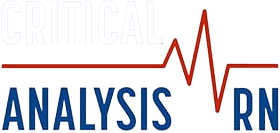Child abuse cases are complex and sensitive, requiring a careful and detailed examination of medical evidence. Forensic Nurse Consultant in Child Abuse Cases bring a unique perspective to these cases, combining their medical expertise with forensic knowledge to provide thorough and insightful analysis. Their role is crucial in identifying, interpreting, and presenting evidence that can make a significant difference in legal proceedings.
Understanding the Signs of Child Abuse
Forensic nurse consultants are trained to recognize the signs of child abuse, which can vary widely in presentation. These signs can be physical, emotional, or behavioral and may not always be immediately apparent. Some common indicators include:
- Bruising and Injuries: Unexplained bruises, welts, or cuts, especially in areas not prone to accidental injury, such as the back, thighs, or upper arms. Patterns of bruising, such as handprints or belt marks, can also suggest abuse.
- Burns: Burns may appear in unusual patterns, such as circular marks from cigarettes or scald marks from hot water. The location and type of burn can provide clues about the cause.
- Fractures: Broken bones in various stages of healing may indicate repeated trauma. Certain types of fractures, such as spiral fractures, can suggest twisting injuries often associated with abuse.
- Internal Injuries: Injuries to internal organs, often not visible externally, can be detected through medical imaging and can provide evidence of severe trauma.
- Behavioral Signs: While forensic nurse consultants primarily focus on physical evidence, understanding changes in behavior can also support the identification of abuse. Withdrawal, fearfulness, and aggression are common behavioral signs that may accompany physical evidence.
Detailed Review of Medical Records
One of the primary tasks of a forensic nurse consultant in child abuse cases is to conduct a thorough review of medical records. This involves examining all available documentation from medical visits, hospital stays, and any previous injuries noted in the child’s medical history. The goal is to identify patterns or inconsistencies that may suggest abuse or find possible medical evidence of genetic or metabolic diseases and conditions.
Interpreting Medical Evidence
Interpreting medical evidence in child abuse cases requires a deep understanding of both medical and forensic principles. Forensic nurse consultants are skilled at analyzing the following types of evidence:
- Injury Patterns: By examining the location, size, and type of injuries, forensic nurse consultants can often determine whether the injuries are accidental or intentional. For example, bilateral injuries (injuries on both sides of the body) are less likely to be accidental.
- Developmental Considerations: Understanding what injuries are common for different developmental stages is crucial. For example, certain fractures might be expected in older children who are active in sports but would be concerning in an infant.
- Consistency with Reports: Forensic nurse consultants compare the injuries with the accounts given by caregivers or the child. Discrepancies between the reported cause of injury and the physical findings can be significant.
- Medical Imaging: X-rays, CT scans, and MRIs can reveal internal injuries that are not visible externally. Forensic nurse consultants can interpret these images to identify signs of abuse, such as old fractures in various stages of healing.
Providing Detailed Reports
Forensic nurse consultants compile their findings into detailed reports that summarize their analysis of the medical evidence. These reports are clear, concise, and comprehensive, offering a thorough examination of the evidence.
A typical report may include:
- Summary of Reviewed Medical Records: An overview of all the documents and records examined during the review.
- Description of Injuries: A detailed account of all identified injuries, including their type, location, and possible causes.
- Analysis of Findings: An interpretation of how the injuries are consistent or inconsistent with the reported events and whether they suggest a pattern of abuse.
- Relevant Medical Literature: References to medical research and literature that support the findings and conclusions in the report.
Presenting Expert Testimony
In court, forensic nurse consultants may serve as expert witnesses, providing testimony that explains the medical evidence in an understandable and compelling manner. Forensic nurse consultants can describe the injuries, explain how they occurred, and discuss their implications.
Conclusion
Forensic nurse consultants play an essential role in reviewing and interpreting evidence in child abuse cases. Their medical expertise and forensic knowledge enable them to identify, analyze, and present evidence in a clear and comprehensive manner.
For attorneys handling child abuse cases, the insights and analysis provided by forensic nurse consultants are invaluable. Their contributions help ensure that the medical evidence is thoroughly understood and effectively presented.
Would you like to discuss your case? Just give me a call at (432) 661-3639 or email me today!
